The Mossad spy agency refused to carry out a planned ground operation to kill Hamas’s leaders in Doha, fearing that the operation would doom hostage-ceasefire talks and damage the agency’s ties with Qatar, a key Mideast mediator, the Washington Post reported Friday.
Instead, Israel was forced to carry out airstrikes, which Israel’s security establishment now increasingly believes failed to kill any of Hamas’s top brass who were gathered at the site of Tuesday’s strike in Doha.
That assessment was strengthened Friday, when Hamas announced that its Qatar-based leader Khalil al-Hayya performed funeral rites for his “martyred” son Hammam, effectively negating initial rumors that the terror group’s chief was killed in the attack.
Amid the fallout from the apparent failed strike, reports began to emerge of significant opposition to the plan, both in the way it was carried out and the timing amid ongoing hostage talks.
A senior official with knowledge of talks on the hostage release-ceasefire deal told Channel 12 that most of the defense establishment recommended that the attack be put off.
“The position was clear — there is a deal for the return of the hostages on the table, and the negotiations should be exhausted. Everyone understood the consequences for the hostages and that an operation like this at the current time could harm this possibility,” the official said.
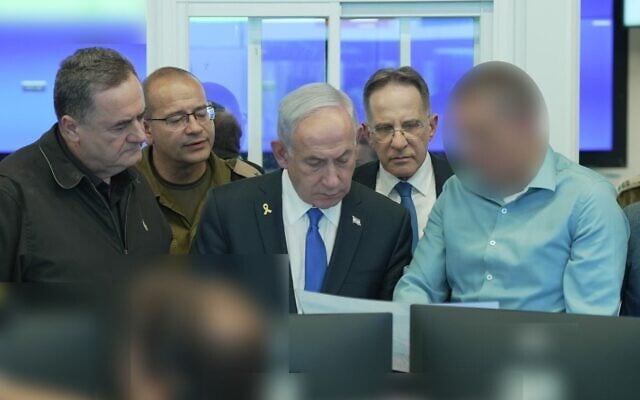
Channel 12 reported that the plan was opposed by IDF chief of staff Eyal Zamir, Mossad chief David Barnea and National Security Adviser Tzachi Hanegbi.
It said that Prime Minister Benjamin Netanyahu, Defense Minister Israel Katz, acting Shin Bet chief known as “Mem,” and Strategic Affairs Minister Ron Dermer were in favor of the attack.
Nitzan Alon, who heads the hostage negotiations, was reportedly not invited to the discussion on the operation, with top officials assuming he would object to any action that could endanger the hostages.
The Mossad spy agency even declined to carry out a ground operation to assassinate the Hamas leaders it had drawn up, forcing the adoption of an air strike, two Israelis familiar with the matter told The Washington Post on Friday.
Mossad chief Barnea opposed killing the leaders in Qatar due to the spy agency’s relationship with Doha as well as its role as a mediator in talks with Hamas, the sources said.
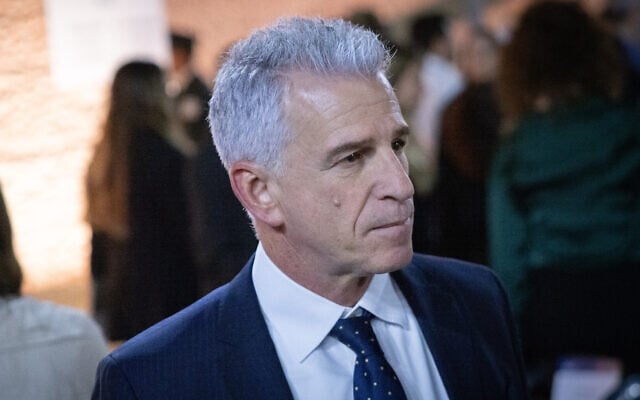
Israel’s announcement of the strike said it had been carried out by the Air Force, in conjunction with the Shin Bet security service. The operation was even monitored from a Shin Bet command center.
The Shin Bet is normally tasked with domestic security, while the Mossad handles operations abroad.
The Washington Post report noted that it was the Mossad that killed Hamas leader Ismail Haniyeh in Tehran last year. The agency was also heavily involved in Israel’s surprise attack on Iran earlier this year and famously spearheaded the exploding pager operation on thousands of Hezbollah operatives.
“This time, Mossad was unwilling to do it on the ground,” the Washington Post quoted one of the Israelis as saying, adding that the agency viewed Qatar as an important intermediary in talks with Hamas.
Another Israeli familiar with the dissent from the Mossad questioned Netanyahu’s timing. “We can get them in one, two, or four years from now, and the Mossad knows how to do it,” he said, referring to the possibility of covertly assassinating Hamas leaders anywhere in the world. “Why do it now?”
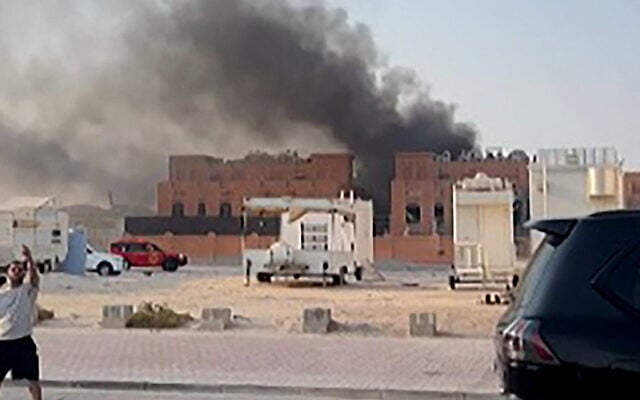
The Post said that the Mossad did not respond to a request for comment. The prime minister’s office, which oversees the Mossad, did not respond to requests for comment.
None of the top leaders killed
As the Israeli security establishment increasingly believes that none of Hamas’s leadership was killed in the strike, it has begun checking whether the terror group’s top brass was even in the building that was targeted, Channel 12 reported Friday evening.
The other possibility still being examined is that the Hamas leaders were in a different part of the building than the section that was hit directly, the report said.
The report noted that Israel, fearing an even greater backlash from Qatar if there had been significant local casualties, had likely used very precise munitions that targeted specific rooms in the building and not ones with larger warheads that could have ensured the destruction of all in the building, as Israel had deployed in Gaza and Lebanon.
The security establishment believes that one or two Hamas leaders may have been injured — potentially al-Hayya among them. This could explain Hamas’s decision not to release a photo of him in its statement announcing that he is still alive.
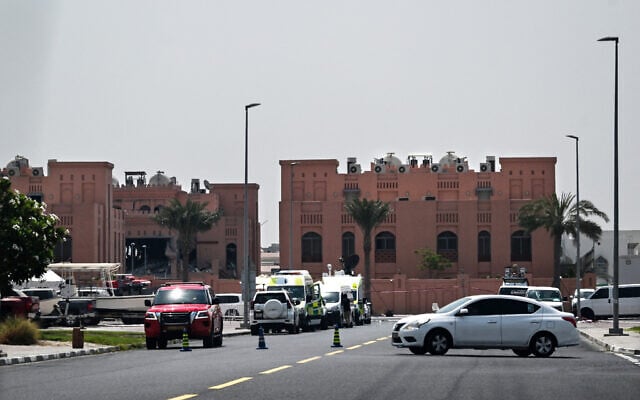
Another scenario being checked is whether the Hamas leaders managed to get a heads-up at the last minute, which enabled them to escape ahead of time, though that would mean that top officials like Hayya didn’t alert his slain son.
A Hamas source told the Al Araby TV network on Friday that the terror group did not receive any prior warning from an external source over the attack, and that the survival of the Hamas leadership was the result of security arrangements by the terror group and Qatar.
A defense source cited by Channel 12 tried to paint a more positive picture, charging that the strike “did its job” even though it apparently failed to kill any of the intended targets.
“Inside Hamas, voices are being heard that Israel is an unexpected enemy, and this scares them. When they see what happened in Qatar, they fear what may happen in Gaza,” the source said.
Hamam and the other acknowledged victims were buried Thursday.
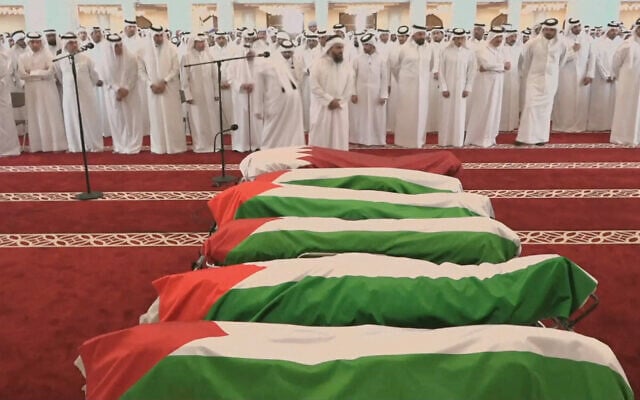
Hamas said al-Hayya was able to hold a ceremony for his son thanks to “special security arrangements” in Qatar. It was not immediately clear if al-Hayya took part in the main ceremony or a separate private one.
Hamas did not publish a corroborating photo of al-Hayya’s presence and none of the top leaders believed to have been present at the site of the attack have been spotted publicly since the strike, as Hamas and Qatar have tried to maintain an information vacuum since.
Al-Hayya has been heading Hamas’s hostage negotiating team.
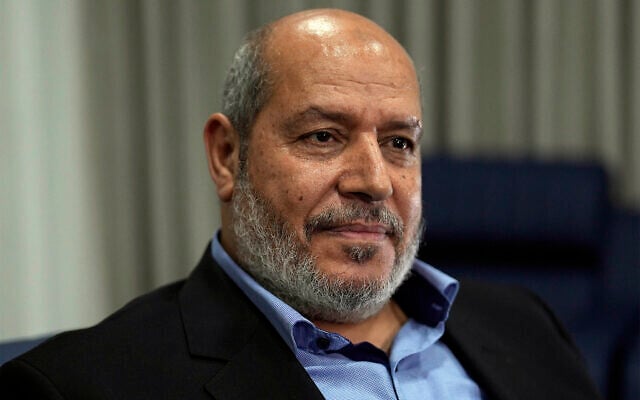
The strike on Qatari soil sparked a fierce diplomatic backlash against Israel, with even US President Donald Trump said upset with Netanyahu.
Politico reported Thursday that Trump’s administration is growing frustrated with the prime minister, after Israel attempted to eliminate Hamas leaders in Qatar while they were said to be gathered to discuss the US-proposed framework for a hostage release deal earlier in the week.
Trump himself said Tuesday that he was “very unhappy about every aspect [of the strike]. We’ve got to get the hostages back, but I’m very unhappy about the way that went down.”
Hamas identified the dead as Jihad Labad, head of the office of top Hamas official Khalil al-Hayya; al-Hayya’s son; and three others described as “associates” — either advisers or bodyguards: Abdallah Abd al-Wahid, Muamen Hassouna and Ahmad Abd al-Malek. In addition, a Qatari security officer, Lance Corporal Badr Saad Mohammed al-Humaidi al-Dosari, was killed.
Doha will host an emergency Arab-Islamic summit next Sunday and Monday to discuss the Israeli attack, Qatar’s state news agency reported earlier on Thursday.

